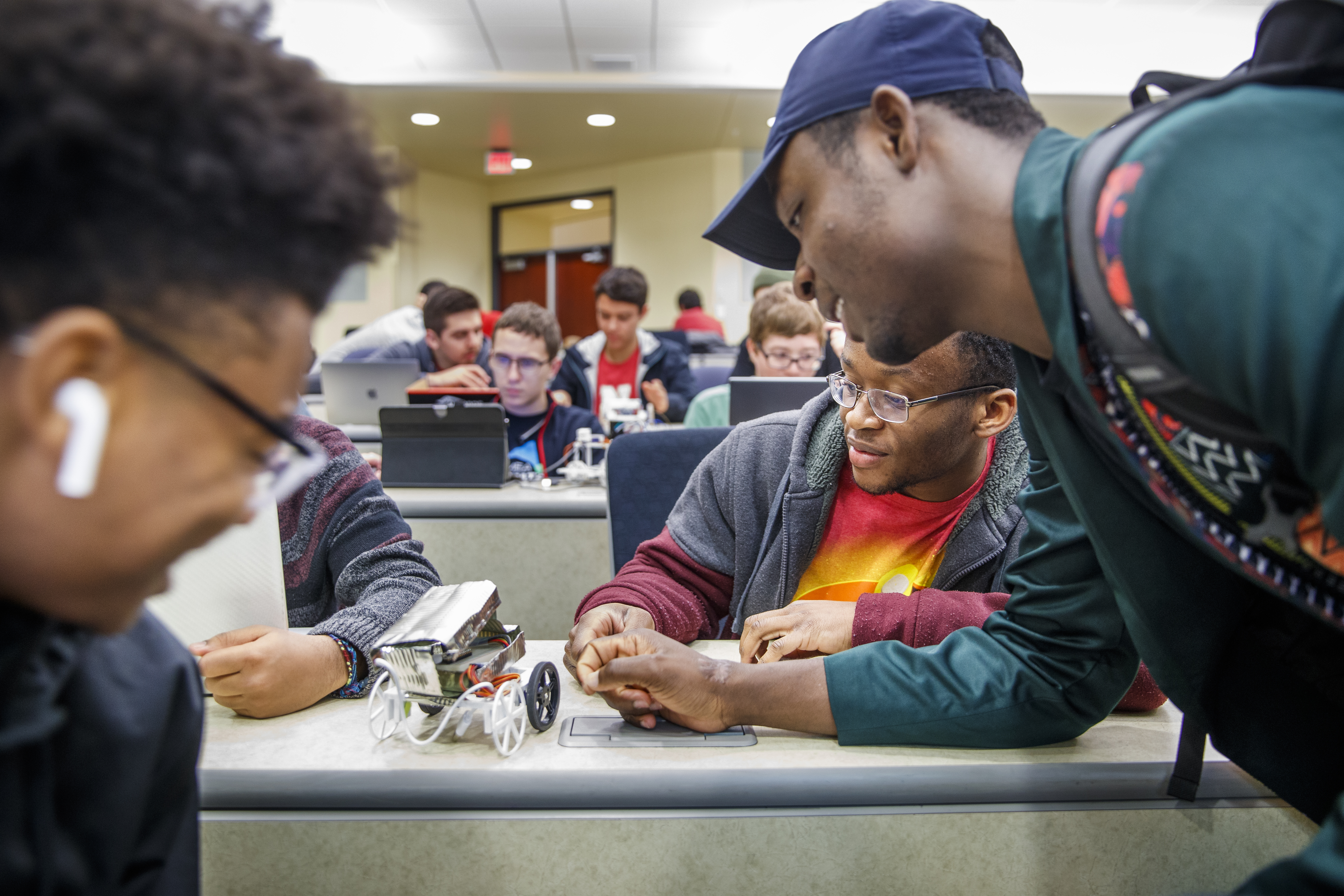
Teamwork is an essential part of many disciplines and a skill that many employers are looking for. As with any skill, the ability to work well in a group setting is something that instructors can help support by building intentionally designed learning experiences for students. Effective and meaningful teamwork requires structure and support, especially for projects that are long-term and multifaceted.
To help support instructors in creating better teamwork experiences for students, the Center for Transformative Teaching has developed a new guide for effective teamwork. It includes guidance for effective practices on many aspects of teamwork such as forming teams, building good relationships within teams, evaluating teamwork, and supporting struggling teams.
Good group projects are best supported by intentional and clear structuring. Some tips that may help ensure your teams are successful include:
- Be strategic about forming teams. Allowing students to choose their teams is easiest, but can lead to unbalanced teams. Consider using factors like interest, skill level, or knowledge of the project topic to create teams with balanced ability to complete the assigned task.
- Allow time for team building. Class time is limited, so it’s tempting to have teams get to work right away. However, allowing time for introductions and team building helps make teams more successful. This can include things like sharing of strengths, scheduling of out-of-class meetings, and developing expectations for team functioning.
- Explain expectations clearly. Break large projects into small pieces and provide clear guidance for how to complete each step. Consider providing time for teams to get started with each step in class so you can monitor early stages of the work and ensure teams are working in the right direction.
- Evaluate teamwork. This may or may not be a formal part of the grade, but either way it lets you know how well teams are functioning and whether there are any problems. Options include each individual providing ratings of each team member, asking teams for detailed meeting minutes or recordings, or written reflections on the teamwork component of the project.
- Supporting struggling teams. Even with the best planning, you’ll likely have a team or two that struggles for various reasons. Students in these situations often don’t have the skills to understand and fix the problems that are happening, so having an instructor intervene as soon as the problem arises can help get the team back on the path to success.
The teamwork guide has more detail on specific strategies to use for each of these aspects. Through a well-planned and deliberate approach to teamwork, students can experience numerous benefits from these strategies, including improved communication, motivation, creativity, higher-level reasoning skills, and career readiness.
It can be challenging to successfully implement teamwork. Instructors who would like personalized support that addresses their class context should contact their instructional designer.
More details at: https://go.unl.edu/teamworkguide